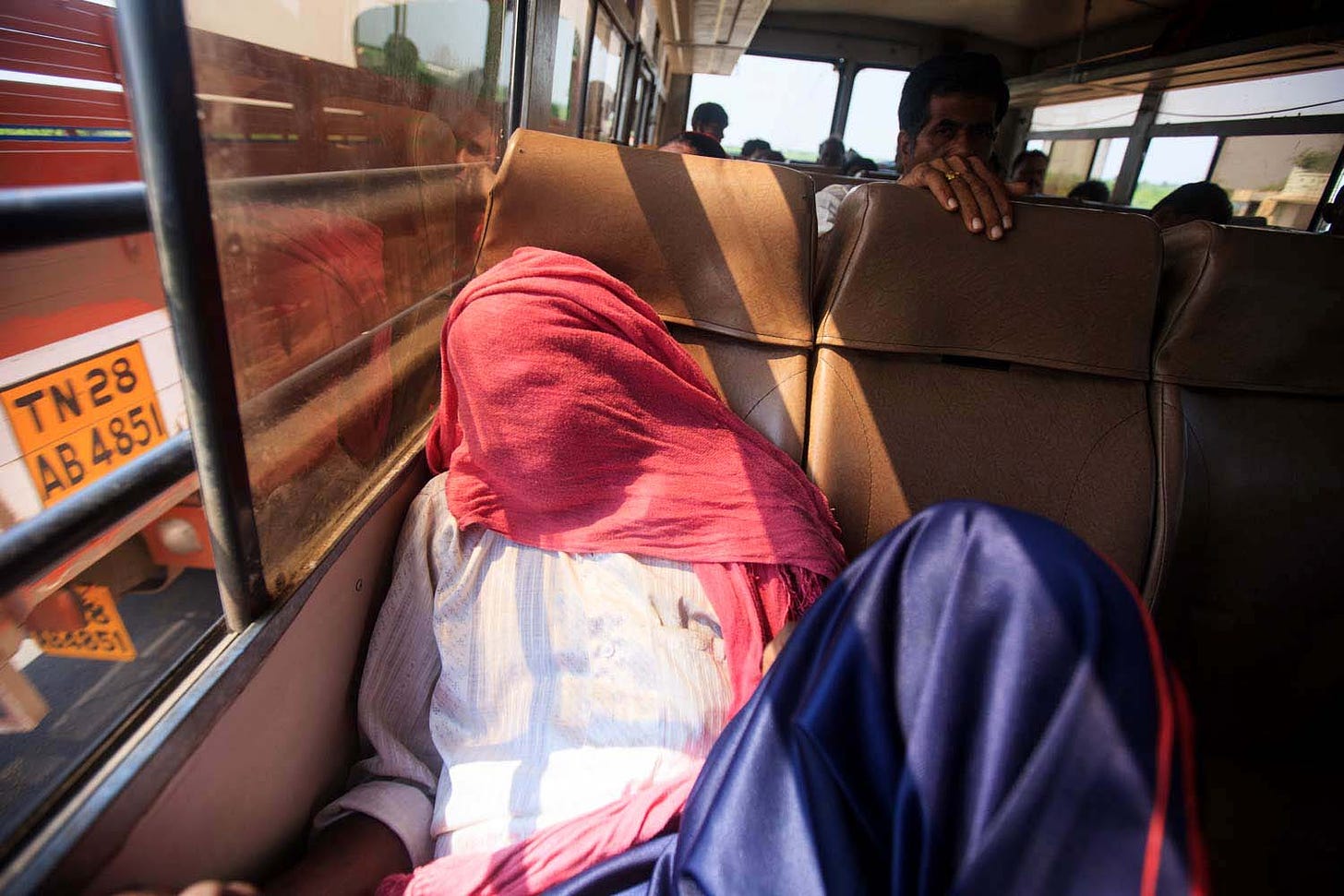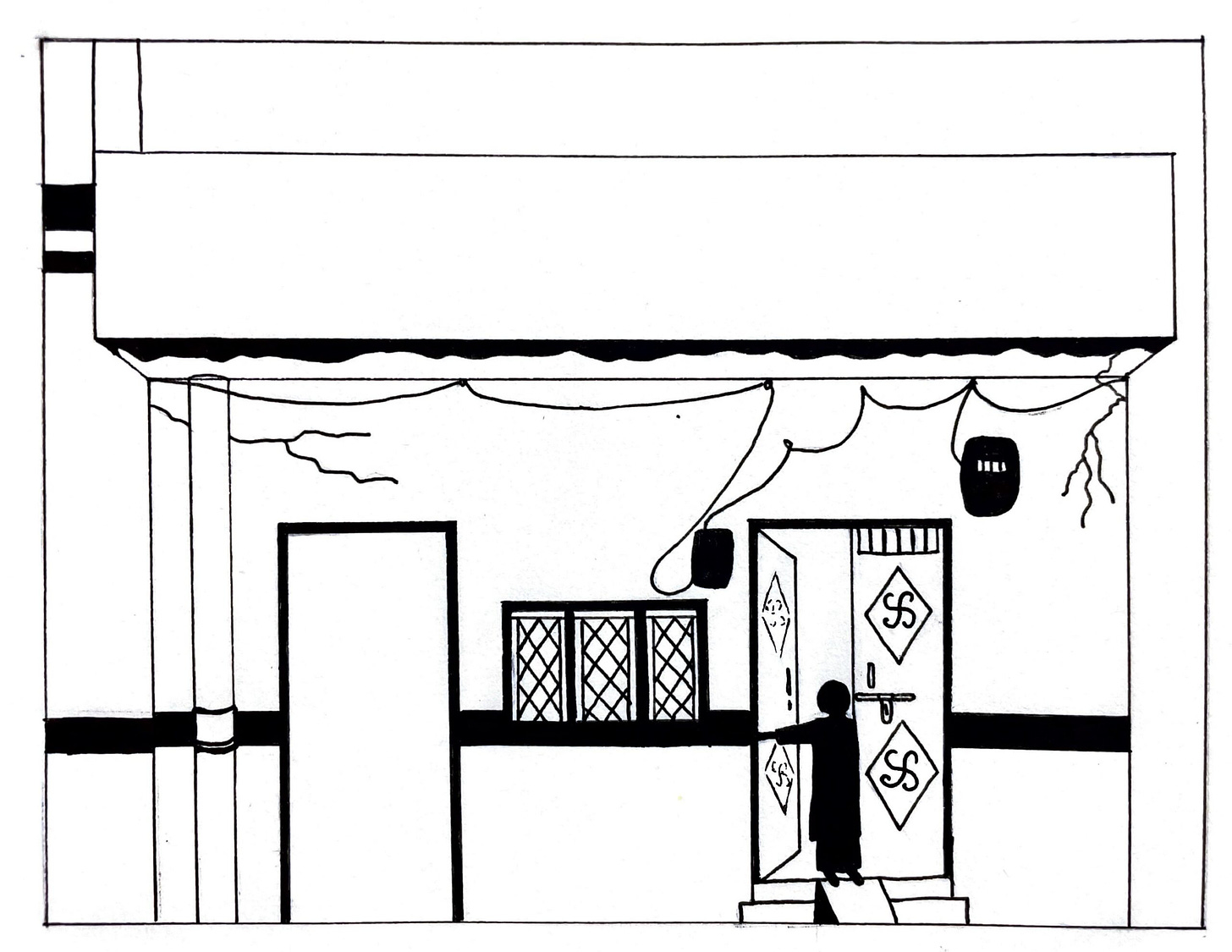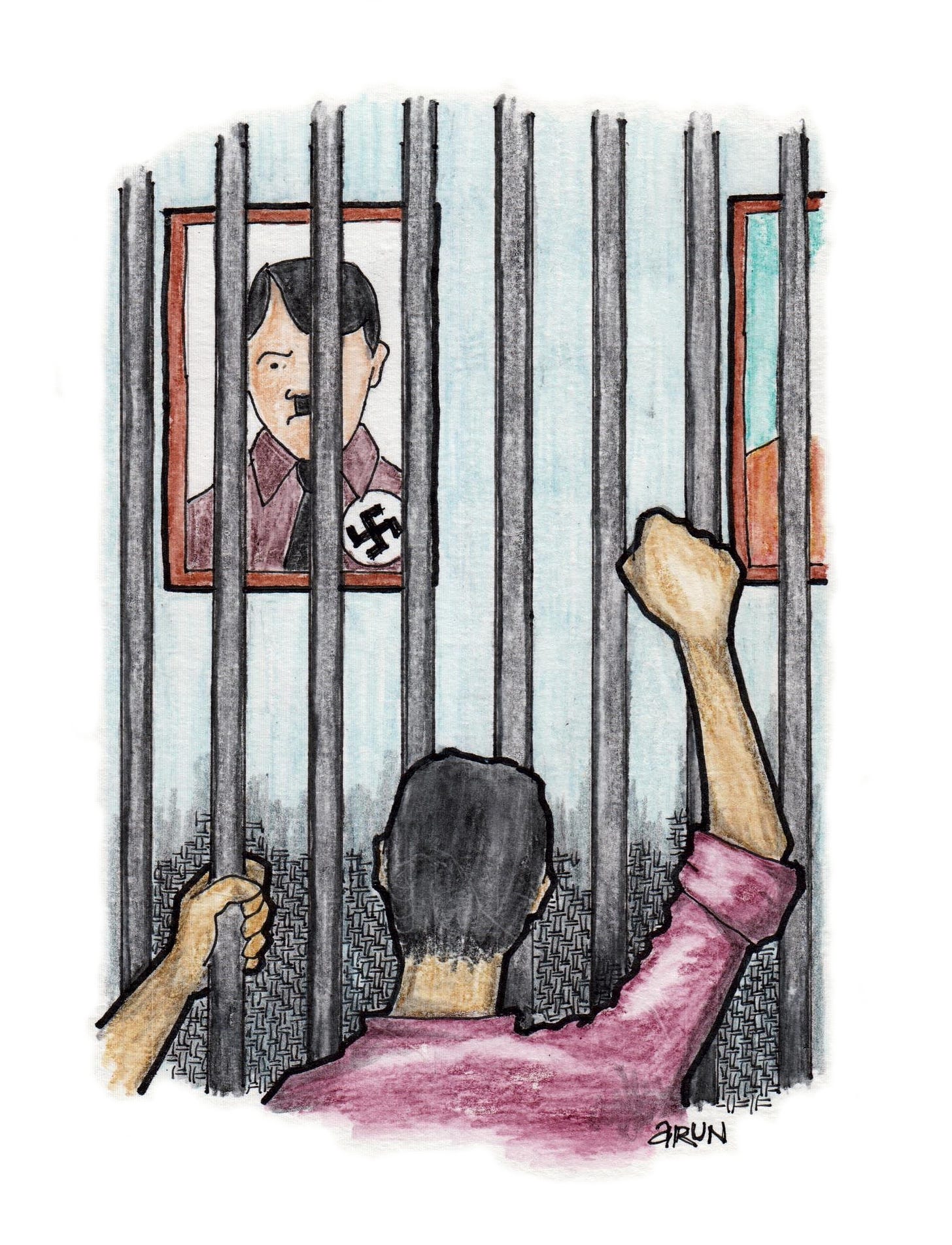One Year of Israel's Genocide on Palestine, Polls in Haryana & J&K, the 'Barbed Wire' in Kashmir's Landscape
On the Haryana and Jammu & Kashmir elections, our long read on the barbed wire landscape of Kashmir, and acknowledging that it has now been a year of Israel’s ongoing genocide in Palestine.
Hello hello! Its poll season again. As we send out this newsletter, we are just a day away from the results from Haryana and Jammu & Kashmir.
The Haryana results promise to be interesting, with the Lok Sabha results already having shown declining support for the incumbent BJP following the farmers’ movements of 2020-21 and again ongoing since February 2024. Farmer leaders have already called for the defeat of the BJP, which has not included a legally guaranteed Minimum Support Price in its manifesto. Moreover, the Congress is also likely to benefit from the Jat voters, a predominantly agrarian community that constitutes over 25 percent of the electorate, who are expected to punish the JJP for its dithering support for the farmers.
Most of the exit poll predictions, released on 5 October, predicted a clear majority for the Congress in Haryana. However, the current chief minister Nayab Singh Saini has dismissed the predictions and claimed that BJP will form government alone in the state.
In this year’s Lok Sabha polls, the BJP’s seat share went down from ten to five in Haryana, and its vote share went down from 58 in 2019 to 46 percent, while the Congress gained all five seats the BJP lost, and also gained 15 percent vote share, going up to 43 percent. The Congress’ electoral gains were also marked by increased support from Dalits, who constitute 20 percent of the populace, and which the Congress will need to retain in the Assembly to wrest power from the BJP. The Congress manifesto repeats its Lok Sabha promise of a caste census.
However, given that the marginalisation of Dalits in the state by the Jat community, which is favoured by the Congress, and the two other Jat-Dalit alliances in the state between the BSP-INLD and the JJP-Azad Samaj Party, the Congress does not have a secure route to power. Meanwhile, the BJP has its task cut out, with the continuing farmers movement and the BJP’s only Dalit leader Ashok Tanwar making a last-minute return to the Congress, and ultimately relying on its usual playbook of consolidating the OBC and non-Jatav Dalit votes.
Following the BJP’s pyrrhic victory in the Lok Sabha this year, these polls present the first opportunity for the party to reclaim some political stature. And even though the BJP is only contesting 19 of the 47 seats in Kashmir, its control and dominance in the region is reflected through other means beyond the ballot box. As Sabahat Ali Wani observes in our latest Long Read published (belatedly, apologies) this weekend, one of the most ubiquitous, inescapable means of control in Kashmir is the barbed wire. “Amid all the rhetoric, narratives and promises of electoral campaigns, nobody speaks of the barbed wires, because everyone accepts the political reality of their entrenched presence in the Kashmiri landscape,” she writes.
In her compelling essay, Wani weaves the history and origins of the barbed wire in an examination of its use as a material of occupation. She traces its transformation from an agricultural tool to a military one, examines how its deployment in Kashmir disrupts the binary of beast and herd, and studies its representation in the art, literature and resistance of Kashmiris. Do give it a read, in many ways it’s the story that is at the heart of so many stories from Kashmir, and one that remains unchanged whatever happens in the polls.
Before moving on to the pieces coming up this month, it is crucial to acknowledge that it has now been a year of Israel’s ongoing genocide in Palestine. As Israel’s war on Palestine turns into a war on Lebanon, it is worth remembering that the developments that we have seen play out over the past year have played out over the decades too.
In The Hundred Years War On Palestine, Rashid Khalidi notes how Israel’s war on Lebanon in 1982 was only possible because of the United States’ support. “The decision to invade Lebanon was made by Israel’s government, but it could not have been implemented without the explicit assent given by Secretary of State Alexander Haig or without American diplomatic and military support, combined with the utter passivity of the Arab governments,” Khalidi writes. Then, as we have seen time and time again over the past year, the US made assurances and promises that Israel brazenly and consistently ignored. In fact, when Israel began bombing Lebanon in 1982 despite the Palestine Liberation Organization agreeing to leave Beirut, Khalidi notes that even Ronald Reagan was so moved by the indiscriminate violence that it prompted him to persuade his Israeli counterpart Menachem Begin to call it off.
But Reagan’s call was a rare act of humanity in a relationship otherwise consistently marked by supine support. Khalidi notes how documents reveal that the US had trouble in “standing up to the Israelis over anything to do with their occupation of West Beirut.” When the US deputy secretary of state told Israel’s ambassador that the State Department might call the occupation “contrary to assurances,” it was 33-year-old Benjamin Netenyahu, a junior diplomat at the time, who instructed the Americans to reconsider this decision. “Otherwise you give us no choice but to defend our credibility by setting the record straight. We’ll end up in a shooting war with each other.” Khalid writes:
“… because of American backing for Israel and tolerance of its actions, its supplies of arms and munitions for use against civilians, its coercion of the PLO to leave Beirut and refusal to deal directly with it, and its worthless assurances of protection, the 1982 invasion must be seen as a joint Israeli-US military endeavour—their first war aimed specifically against the Palestinians … it was Israel that called the tune, deployed its might, and did the killing, while the United States played an indispensable but supporting role.”
Much the same can be said of Joe Biden and the ongoing genocide. And neither Donald Trump nor Kamala Harris have expressed any inclination to stand up to Israel.
Coming back to business, we have a very exciting month ahead of us with two Long Reads, one from India and the other from South Sudan, both thematically connected by the topic of climate change, pastoralism and the role of state interventions. Our BK-16 Prison Diaries series will continue with a painful, moving piece by the poet Varavara Rao (and hopefully some others), as will our Disappearance and Demolitions projects with important new stories of lives and people forgotten after events that transformed their lives. Apart from that, we’ve also had a lot of new remarkable, talented people join our small team recently, and we are eager to announce them all to you soon.
That’s all for this month, until next time!
Arshu John
Political Editor
Photo by: Ritesh Uttamchandani
Disappearance
In the Disappearance project, Aabha Muralidharan will document the state practice of disappearances. This month, we will look at the disappearances caused by the heatwaves in India, apart from looking at other state-enforced disappearances of land, bodies and mind.
Sign up for Aabha’s newsletter for updates and discussions from her research!
Demolitions
In the Demolitions project, our research will delve into important issues surrounding demolitions in India, including housing rights, impact on communities, legal frameworks, displacement and development, and the broader socio-political contexts that lead to it. This month, we are excited to publish our first profile of one of the houses, studying the demolitions through an ethnographic lens by looking at the lives and histories associated to these properties. Through this research, we hope to amplify the voices of affected communities and advocate meaningful interventions. Sign up for our Demolitions newsletter!
BK-16 Prison Diaries
Last month, we published an stirring, heartfelt and heart-wrenching essay by Ramesh Gaichor. Do read his account of the days leading up his arrest; the corrupt, inhuman practices of the prison system; the Elgar prisoners' struggles against it; the cruelty of separation and isolation; and the uplifting scenes of solidarity. Here’s a little excerpt from the piece, from one of its more inspiring sections:
By this I mean to say that I have not been able to do much and yet I have, even in this captivity, been able to do quite a bit. Prison injures a lot of your things. It keeps a constant watch on your every expression. Yet our expression could pierce past these walls and reach the people outside. It was a source of great inspiration to us that our words, our poems, our calls to struggle could cross these massive stone walls and reach the people, and that the people paid heed to and embraced our expression. That the people did not allow us to be cut off from them and that our links with the people remain strong till today is something that gives us a strong basis to persevere.






